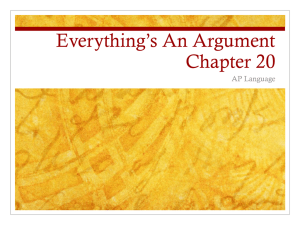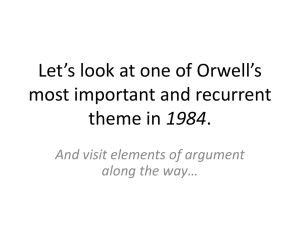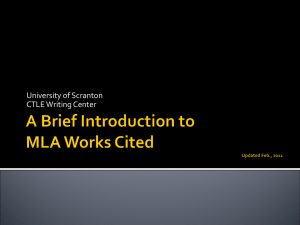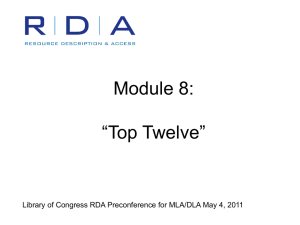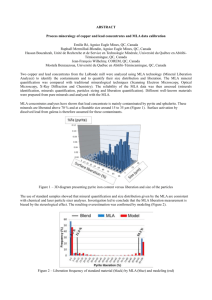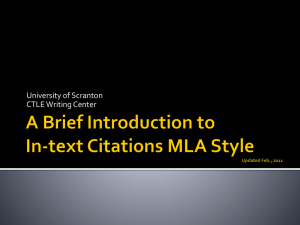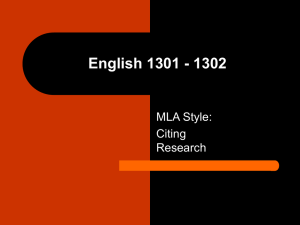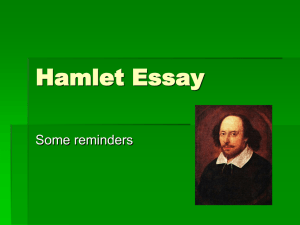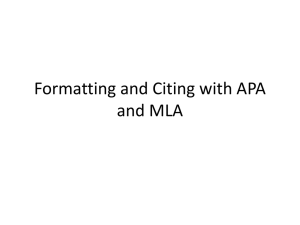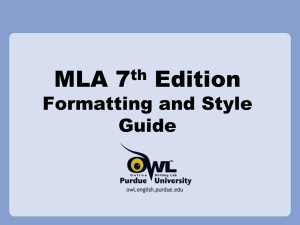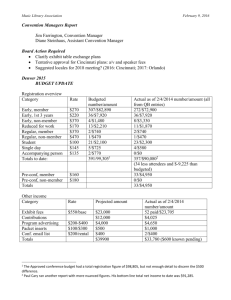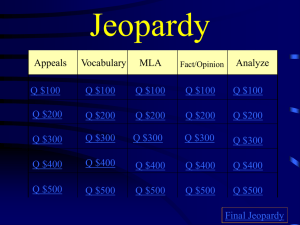RDA and Linked Data--Moving Beyond the Rules
advertisement
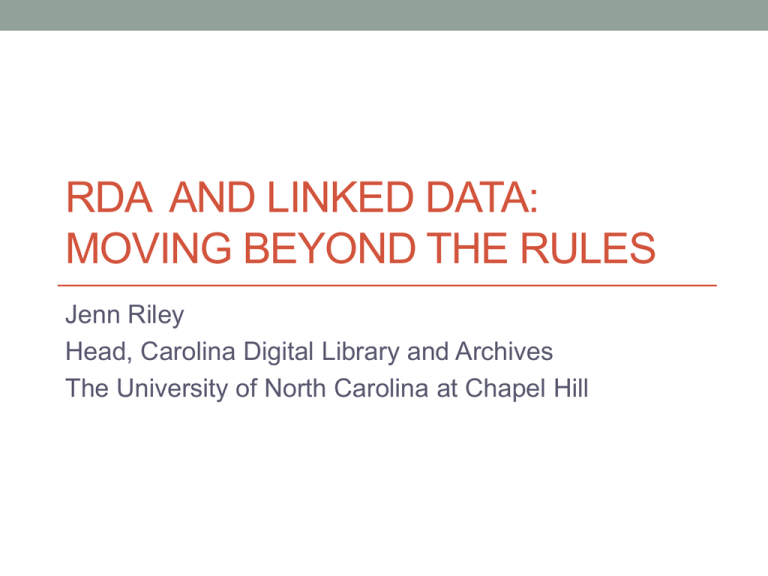
RDA AND LINKED DATA: MOVING BEYOND THE RULES Jenn Riley Head, Carolina Digital Library and Archives The University of North Carolina at Chapel Hill February 18, 2012 MLA 2012 2 21st century information landscape • Everything interconnected • Build on others’ data • Semantic Web • Think of it as authority files on steroids • It’s all very meta February 18, 2012 MLA 2012 3 Linked Data • Use URIs as names for things • Use HTTP URIs so that people can look up these names • When someone looks up a URI, provide useful information, using standards • Include links to other URIs, so that they can discover more things Tim Berners-Lee, Linked Data – Design Issues http://www.w3.org/DesignIssues/LinkedData.html February 18, 2012 MLA 2012 4 RDA as data elements • There’s another side to RDA, beyond the rules • Grew out of a 2007 meeting between representatives from the JSC and DCMI • But it’s currently operating mostly independently • Vision is that RDA data elements could be the basis for machine interoperation of library data in a Linked Data environment in the future OFF TO KIMMY… February 18, 2012 Encoding a graph into data MLA 2012 6 February 18, 2012 MLA 2012 7 Woah. Really?!? Nobody is meant to create this data in this form directly. Really. Libraries encoding data in this form opens up enormous possibilities for us to participate in the wider information community. Let’s explore that idea. February 18, 2012 MLA 2012 8 This is the last of the XML, I promise. February 18, 2012 MLA 2012 9 Other important features of the Semantic Web/Linked Data environment • The RDF graph model is the most important thing; • • • • • encoding triples in a specific syntax is secondary The concept of a “record” isn’t really meaningful when looking at the information world as a graph Open world assumption Many vocabularies, with connections between them Expectation that implementations will deal with data from multiple sources Reasoners February 18, 2012 MLA 2012 10 Large Linked Data initiatives to watch • Named graphs • Provenance WG • Also watch DC-Architecture February 18, 2012 MLA 2012 11 Infrastructure that we’ll need • Ways to identify trusted data sources • Ways to identify and understand properties and classes defined by others • Best practices for data caching • Actual shared cataloging • We’ll need to stop downloading records. I mean that. • Better data creation, management, sharing, and exposure systems • Ones that actually work • Library community best practices on where to scope our data creation efforts February 18, 2012 Here’s one part of that emerging infrastructure MLA 2012 12 February 18, 2012 MLA 2012 13 What the library community is doing • Exposing authority (and more recently bibliographic) data, and vocabularies as Linked Data • W3C Linked Library Data Incubator Group • Stanford Linked Data Technology Plan • RDA as data elements in Open Metadata Registry • Still dancing around official endorsement • LC Bibliographic Framework Transition Initiative • “The new bibliographic framework project will be focused on the Web environment, Linked Data principles and mechanisms, and the Resource Description Framework (RDF) as a basic data model.” (From http://www.loc.gov/marc/transition/news/framework103111.html) February 18, 2012 MLA 2012 Who’s doing music Linked Data? • Last.fm • BBC Music • MusizBrainz • Discogs • DBtune • Magnatune • Many more, and growing 14 February 18, 2012 MLA 2012 My burning question What would it mean for libraries to be LD consumers, and not just publishers? 15 February 18, 2012 MLA 2012 16 Thanks! • jennriley@unc.edu • These slides: http://www.lib.unc.edu/users/jlriley/presentations/mla2012/jennMLARDA.pptx • W3C LLD Incubator Group final report: http://www.w3.org/2005/Incubator/lld/XGR-lld-20111025/ • Stanford Linked Data Technology Plan: http://www.clir.org/pubs/reports/pub152/LDWTechDraft_ver1.0final_11 1230.pdf • Open Metadata Registry: http://metadataregistry.org • Hillmann, Diane, Karen Coyle, Jon Phipps, and Gordon Dunsire. (January/February 2010) “RDA Vocabularies: Process, Outcome, Use.” D-Lib Magazine 16, no. 1/2. http://dlib.org/dlib/january10/hillmann/01hillmann.html
